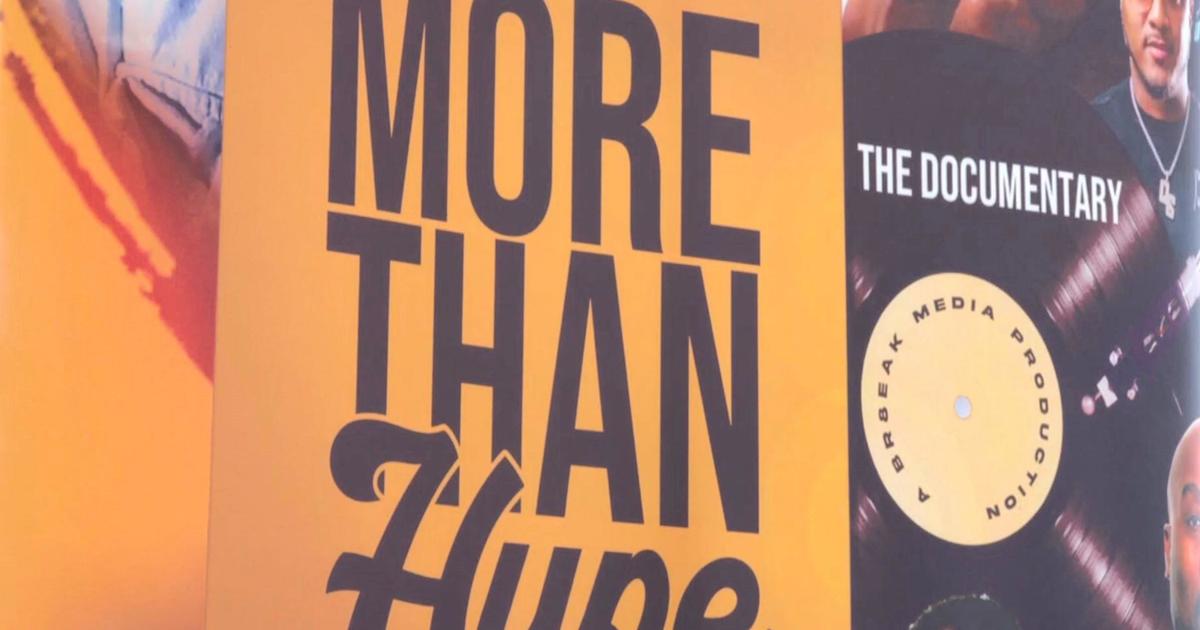Baltimore Business Owners Speak Out Against Proposed Curfew For The Block's Bars & Clubs
BALTIMORE (WJZ) -- Business owners on Friday spoke out against a bill that would require strip clubs and bars on The Block in downtown Baltimore to close by 10 p.m., saying the proposed curfew threatens their livelihoods.
Standing alongside former Maryland deputy attorney general Thiru Vignarajah, the business owners called on Mayor Brandon Scott to stand up for local businesses and challenged the bill's supporters to explain why their industry is being singled out.
"There are hundreds of employees that work here who work very hard every day to provide for their families, to put food on the table for their children," Vignarajah said. "And make no mistake, a 10 p.m. curfew will shut down most of these businesses."
Senate Bill 222, a piece of legislation introduced Jan. 12 by Senate President Bill Ferguson, would require businesses in the 400 block of East Baltimore Street that hold liquor or adult entertainment licenses to close their doors by 10 p.m.
The legislation is the result of a joint effort by Sen. Ferguson, 46th District Dels. Luke Clippinger, Robyn Lewis and Brooke Lierman, City Councilman Eric Costello and the Baltimore Police Department, which is headquartered nearby.
Backers of the legislation cited a recent rise in criminal activity on The Block, saying deploying more officers to the area has stretched police resources thin.
In a statement on Thursday, Baltimore Police Commissioner Michael Harrison said police had 831 calls for service on The Block and nearby areas in 2021, including eight shootings, 15 robberies, 17 aggravated assaults and a suspicious death.
"Violence within and resulting from The Block in Baltimore City's central business district has drastically increased in recent months despite a robust and consistent deployment by the Baltimore City Police Department," Harrison said. "Many of those were brazen incidents with police offices in the immediate vicinity."
City Councilman Eric Costello said so many police resources have been pumped into this one block, it takes away from other areas.
"We have met with them repeatedly to give them an opportunity to get the situation under control, and they failed to do it so this is the resulting action," he said. "Because they have failed to clean it up for themselves it is now going to be cleaned up for them."
University of Baltimore Law Professor Audrey McFarlane explained that lawmakers may be within their rights to force business to close early to address a "secondary effect" like crime.
"The Supreme Court has said repeatedly that your governments have the ability to adopt this kind of regulation to address a secondary effects and as long as you can show that there is a connection between the business and the effects that you're trying to control," said Professor McFarlane.
Speaking on behalf of business owners, Vignarajah questioned why the proposal targeted The Block's bars and clubs but not similar establishments elsewhere.
"There's blocks all around the city that have crime," he said. "You can't say there's crime in Federal Hill, in Fell's Point, in Canton, where there are shootings and fights every other weekend, but this is the block they're going to shut down."
The area has long been associated with adult entertainment, dating at least as far back as the mid-20th century, when Blaze Starr and other burlesque dancers performed in clubs along the street.
Ferguson said on Thursday that in other parts of the city where bars are open late, an elevated police presence and cooperation with business owners has led to a reduction in crime. Unlike those areas, he said, the number and severity of crimes near The Block has only gone up even with increased police patrols in the area.
"What we've seen is a refusal by the business owners to take any accountability for what's happening," Ferguson said.
Vignarajah, however, attributed to the rise in crime in Baltimore to city policies discouraging arrests and prosecutions for certain offenses, and he challenged Harrison and State's Attorney Marilyn Mosby to "do their jobs."
"It's not right. We need a crime plan," Vignarajah said. "But shutting down businesses and excoriating communities because you think you're better than them, that's not a crime plan. That's not going to make us safer."
He said the legislation does nothing to confront the reality that crime afflicts virtually every neighborhood in Baltimore.
"Solving crime on The Block is not going to solve the 21 murders that have happened already this year," he said. "Addressing crime on The Block is not going to address the 40 shootings that have happened in the last 20 days."
"Not a single one of them happened here—not one," he added.
Sara Wantland is co-owner of Club Pussycat, a strip club on East Baltimore Street. She implored the bill's supporters to discuss the legislation with business owners to understand how it could not only impact their bottom line but their families, too.
"This is our livelihood," Wantland said. "If this is taken from us, we can't support our families, like everyone else in the city. So we're just asking for you guys to take extra thought process before you pass a bill like this, that you're going to affect families like mine that have worked so hard and for several years to build businesses."
A man named John S., who identified himself as the president of the East Baltimore Street Association, shared Wantland's concerns. He said the group was organizing protests in response to the bill.
"We won't allow out-of-touch politicians to villainize hardworking people who are trying to provide for their families without ever having a single discussion with any of us," he said, later adding: "They're gonna learn real quick that we're gonna stand up for ourselves."
Vignarajah said the business owners are planning to hold another event next Tuesday in front of City Hall.



